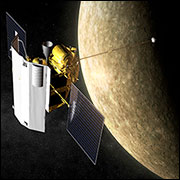
Mobile is getting grounded, HP CEO Leo Apotheker has announced.
In 2012, HP will include the mobile operating system it purchased with Palm in 2009, webOS, on every PC it ships, along with the latest version of stationary computing standard Microsoft Windows.
Apotheker explained that HP seeks to expand the webOS platform’s reach and attract more developers in an interview with Bloomberg Businesswweek. With a mere 6,000 developed apps, webOS seriously lags both Apple’s App Store, with its 350,000 apps, and Google’s Android, with its 250,000.
That could all change, however, with the webOS-PC marriage: HP is the world’s largest PC maker, with more than 60 million units sold last year.
Boon for Developers
The dual OS strategy strikes Lee Yi, founder of Drund, a Web-based app management and development platform, “as similar to Microsoft advertising ‘to the cloud’ with Windows live features.”
Users of multiple devices will find many its value-add features “very attractive in terms of migrating and accessing data,” Yi told TechNewsWorld.
For developers, the webOS/Windows marriage is an unqualified “I do,” explained Yi, whose company helps developers avoid making different versions of the same app for different platforms such as Safari, Chrome, iOS and Android.
“Microsoft is still the dominant OS in terms of numbers, and any device supporting a consumer’s webOS would be another convenient value-add,” he said. “Developers want access to both sets of consumers.”
HP company representatives let Apotheker’s remarks stand without further comment.
Palmed Cards
In the cards at least since HP became HPalm (at least figuratively), an expanded webOS reach wasn’t expected to include desktop and notebook PCs so quickly. However, Apotheker, former CEO of software maker SAP, has governed in the shadows of predecessor Mark Hurd.
Hurd’s tenure at HP ended abruptly in a cloud of scandal over charges he misused funds to hide an improper relationship. Oracle CEO Larry Ellison fueled the controversy by making brash public statements that HP had made a huge mistake in shoving Hurd to the curb. Hurd is now a co-president at Oracle.
Apotheker, apparently, wants to get out of Hurd’s shadow. Apple once made a splash with the notion of “on every desktop, a PC.” Apotheker seems to be borrowing that concept with the promise of “mobile operations on every PC.”
If wisely implemented, the strategy may have a strong shot at success.
“WebOS as a mobile operating system could offer the ability for the user to seamlessly manage data — photos, videos, docs, etc. — across two currently separated environments,” said Drund’s Yi. “I see the translation as stability of data migration and access, which are value-add features.”
Palm Previous
A Linux-based mobile operating system, webOS first appeared on the Palm Pre in 2009. It was one of the first systems to use over-the-air, all-device software updates.
When HP acquired Palm last year, company representatives described webOS as a “key asset and purchase motivation.”
WebOS will still run on mobile devices, including the HP Pre 3, HP Veer smartphones, and the HP TouchPad, a summer 2011 mobile tablet offering.
Many existing Microsoft Windows users will likely adopt the new platform, Yi expects, but he’s not sure if any unintended consequences might later result in a backfired strategy, with consumers returning in droves to the stationary platforms they know. Much of that possibility rests with how well consumers, developers and other industry players adopt and integrate the dual platforms.
“Consumers and developers want to connect to each other and not have to figure out how to manage the gaps between each proprietary platform,” Yi said. “But the intellectual property and profit motives of each corporation could lead to dividing lines, rather than cross platform/technology integration.”






















































check out the article below for more details about hp’s decision to bring webOS to desktops
http://www.thedailytech.co/2011/03/09/all-hp-computers-shipped-in-2012-to-include-webos/